University of Erfurt
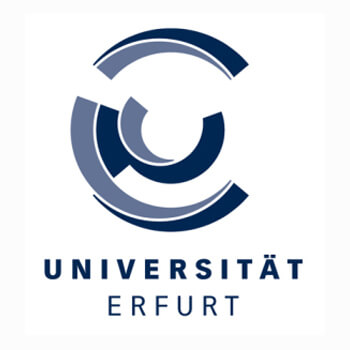
Founded: 1392
Address: Nordhaeuser Straße 63 - Erfurt, Germany
Phone: +49361 7370
Address: Nordhaeuser Straße 63 - Erfurt, Germany
Phone: +49361 7370
Here you find out University of Erfurt complete information about fees, location, degree University of Erfurt offers, number, website, and much more. University of Erfurt is a leading university in Erfurt - Germany.
You can also find out jobs at University of Erfurt for students, teachers, and professors. We also update the database for an internship at University of Erfurt for students.
The University of Erfurt is a campus university with more than 100 professorships and nearly 5.715 students. The reform university for the arts and humanities with a particular focus on cultural and social sciences offers an inspiring atmosphere for studying and conducting academic work. The close ties between the Faculty of Humanities; Faculty of Education; Faculty of Economics, Law, and Socia...l Sciences; Faculty of Catholic Theology and the Max Weber Centre for Advanced Cultural and Social Studies help the university as a whole to forge new paths in teaching and research.
Forward-looking academic programs that combine subject-specific knowledge and professionalization, modern forms of teacher training, and the interdisciplinary general education program are particular distinctions of the University of Erfurt. Our mentoring program and excellent student-faculty ratio guarantee a high-quality education. Refounded in 1994 the University of Erfurt is the youngest public universities in Germany and stands out for not charging tuition fees and its certified family-friendly policy.
The campus is close to Erfurt’s downtown area, making the University of Erfurt a lively part of the Thuringian capital with its low cost of living and its wide range of cultural and recreational activities.
Research at the University of Erfurt is characterized by close ties between the four faculties and the Max Weber Center as well as numerous interdisciplinary projects. The university-wide areas of specialization in Religion and Education are of key importance in shaping the university’s diverse research profile.
These areas of specialization have been intensified by the creation of graduate schools and centers.
Erfurt, a city of approximately 200,000 inhabitants and the capital of the free state of Thuringia, looks back over more than 1250 years of history. Located at the crossroads of important medieval trade routes, Erfurt was the region‘s commercial, political, and cultural center. The biographies of many prominent thinkers, such as Meister Eckhart, Martin Luther, Ulrich von Hutten, Adam Ries, and Wilhelm von Humboldt, were closely connected to Erfurt‘s history.
The immediate vicinity offers many cultural treasures, too. Weimar, the city of Goethe, Schiller, Herder, Nietzsche and Liszt, as well as Eisenach, birthplace of Johann Sebastian Bach, are among the famous places nearby. Erfurt is located at approx. 3 hours by car from Berlin, Frankfurt/Main, Munich and Prague, and only 5 hours away from Brussels, Paris, Amsterdam and Warsaw.
The University of Erfurt is a public university for the arts and humanities with a particular focus on cultural and social sciences. Founded in 1379, closed during the 19th century, and reopened in 1994 following German reunification, the school has acquired recognition due to the quantity and quality of its academic achievements in the fields of education, religion, and other key disciplines. All curricula, including those for teacher training, have been accredited as best-practice models for the implementation of the Bologna system.
Conveniently situated near the capital city’s downtown area, the University of Erfurt encourages direct communication among all members, and facilitates educational exploration as well as interdisciplinary research both on campus and at international partner schools. The University’s mentoring system, its required general education program, and its integrated career orientation program make it a model for other schools. It offers students from Thuringia, other German states, and countries around the world a variety of degree programs at the bachelor, master, Ph.D., and post-doctoral levels. The university’s curriculum, combined with many other facets of the UE experience, prepares students for success in nearly every field imaginable.
The wide spectrum of degree programs at the Faculty of Education includes bachelor and master programs in education and psychology. A number of professional options beyond teaching are open to graduates of UE bachelor programs such as Early Childhood Education, Special Education, Technology, and Music Education.
New beginnings for higher education on the continent in the (then) German-speaking world were the foundations of Prag/Prague/Praha (1348), Wien/Vienna (1365) and Erfurt (1379), the oldest university in Germany. The burghers of Erfurt had requested this privilege during the Western Schism (1378-1417) from Pope Clement VIII. in Avignon, not from pope Urban VI. in Rome, who confirmed the privilege ten years later.
Meanwhile the universities of Heidelberg (1386) and Cologne (1388) had been founded, and the 15th century was then to see the foundations of universities at Würzburg (1402), Leipzig (1409), Rostock (1419), Greifswald (1456), Freiburg (1457), Basel/Basle (1460), Ingolstadt (1472), Trier (1473), Tübingen, and Mainz (1477), to be followed by Wittenberg (1502), Königsberg/Kaliningrad (1544), and others.
Academic teaching at the University of Erfurt, which was founded in 1379 (in the same year as New College Oxford) started in 1392, and it soon became one of the largest German universities. Among its students was a Martinus Ludher ex Mansfeld, who matriculated in 1501, and gained his B.A. (1502), M.A. (1505), and Doctorate (1509) at Erfurt. Martin Luther later wrote: Fateor et agnosco: Mater mea Erfordiensis Universitas, cui non contentionem, sed honorem debeo (Letter of 21 December 1514, WA Briefwechsel I p. 30). Erfurt is Luther’s alma mater.
Like other medieval universities in the German-speaking world, however, Erfurt has not had an uninterrupted institutional life. While the university of Würzburg was closed already less than a decade after its foundation (and refounded in the late 16th century), and while the University of Ingolstadt was moved to Landshut in 1800 (and on to München/Munich in 1826), the old universities of Cologne, Trier, and Mainz were closed in 1798, Wittenberg in 1813, and Erfurt in 1816. In all, more than 20 German universities were closed at that time. Prussia, to which Erfurt belonged from 1802, wanted to have only few ‘strong’ and preferably new universities. Only the institutions in far-away Greifswald and Königsberg/Kaliningrad were allowed to continue, while new universities were founded at Berlin (1809/10), Breslau/Wrozlaw (1811), Halle (1817), and Bonn (1818).
Re-foundations of old universities can mark new beginnings: Cologne (1388-1798) was refounded after the First World War in 1919, Mainz (1477-1798) after the Second World War in 1946, Trier (1473-1798) afterthe events of ’68 in 1970. The re-founding of the University of Erfurt (1379/1392-1816) is closely connected with Germany’s recent history: From 1987, Erfurt citizens in the GDR had lobbied, against many odds, for a re-founding of the university, two years later the re-unification of Germany made it at least imaginable to realize their dream. The actual foundation of the University of Erfurt dates to 1994, the first students were admitted 5 years later. It was amalgamated with a Teacher Training College in 2001, and a Catholic Theological Faculty in 2003.
Today, some 5815 students study at the University of Erfurt, many of them studying for a teachers’ degree, are matriculated in its four faculties: theology, arts, ‘state science’ (PPE & law), and education. Among the university"s neighbours are the "Fachhochschule Erfurt" for applied sciences, the Helios Hospital, and the "Fraunhofer" Research Centre for childrens" media. The University"s research activities are based both in the faculties and in the “Max Weber Kolleg” (an Institute for Advanced Studies), the "Willy Brandt School for Public Policy", and the famous library and Perthes archive in neighbouring Gotha,. The University of Erfurt is at the same time the oldest and the youngest state university in today’s Germany.
You can also find out jobs at University of Erfurt for students, teachers, and professors. We also update the database for an internship at University of Erfurt for students.
The University of Erfurt is a campus university with more than 100 professorships and nearly 5.715 students. The reform university for the arts and humanities with a particular focus on cultural and social sciences offers an inspiring atmosphere for studying and conducting academic work. The close ties between the Faculty of Humanities; Faculty of Education; Faculty of Economics, Law, and Socia...l Sciences; Faculty of Catholic Theology and the Max Weber Centre for Advanced Cultural and Social Studies help the university as a whole to forge new paths in teaching and research.
Forward-looking academic programs that combine subject-specific knowledge and professionalization, modern forms of teacher training, and the interdisciplinary general education program are particular distinctions of the University of Erfurt. Our mentoring program and excellent student-faculty ratio guarantee a high-quality education. Refounded in 1994 the University of Erfurt is the youngest public universities in Germany and stands out for not charging tuition fees and its certified family-friendly policy.
The campus is close to Erfurt’s downtown area, making the University of Erfurt a lively part of the Thuringian capital with its low cost of living and its wide range of cultural and recreational activities.
Research at the University of Erfurt is characterized by close ties between the four faculties and the Max Weber Center as well as numerous interdisciplinary projects. The university-wide areas of specialization in Religion and Education are of key importance in shaping the university’s diverse research profile.
These areas of specialization have been intensified by the creation of graduate schools and centers.
Erfurt, a city of approximately 200,000 inhabitants and the capital of the free state of Thuringia, looks back over more than 1250 years of history. Located at the crossroads of important medieval trade routes, Erfurt was the region‘s commercial, political, and cultural center. The biographies of many prominent thinkers, such as Meister Eckhart, Martin Luther, Ulrich von Hutten, Adam Ries, and Wilhelm von Humboldt, were closely connected to Erfurt‘s history.
The immediate vicinity offers many cultural treasures, too. Weimar, the city of Goethe, Schiller, Herder, Nietzsche and Liszt, as well as Eisenach, birthplace of Johann Sebastian Bach, are among the famous places nearby. Erfurt is located at approx. 3 hours by car from Berlin, Frankfurt/Main, Munich and Prague, and only 5 hours away from Brussels, Paris, Amsterdam and Warsaw.
The University of Erfurt is a public university for the arts and humanities with a particular focus on cultural and social sciences. Founded in 1379, closed during the 19th century, and reopened in 1994 following German reunification, the school has acquired recognition due to the quantity and quality of its academic achievements in the fields of education, religion, and other key disciplines. All curricula, including those for teacher training, have been accredited as best-practice models for the implementation of the Bologna system.
Conveniently situated near the capital city’s downtown area, the University of Erfurt encourages direct communication among all members, and facilitates educational exploration as well as interdisciplinary research both on campus and at international partner schools. The University’s mentoring system, its required general education program, and its integrated career orientation program make it a model for other schools. It offers students from Thuringia, other German states, and countries around the world a variety of degree programs at the bachelor, master, Ph.D., and post-doctoral levels. The university’s curriculum, combined with many other facets of the UE experience, prepares students for success in nearly every field imaginable.
The wide spectrum of degree programs at the Faculty of Education includes bachelor and master programs in education and psychology. A number of professional options beyond teaching are open to graduates of UE bachelor programs such as Early Childhood Education, Special Education, Technology, and Music Education.
New beginnings for higher education on the continent in the (then) German-speaking world were the foundations of Prag/Prague/Praha (1348), Wien/Vienna (1365) and Erfurt (1379), the oldest university in Germany. The burghers of Erfurt had requested this privilege during the Western Schism (1378-1417) from Pope Clement VIII. in Avignon, not from pope Urban VI. in Rome, who confirmed the privilege ten years later.
Meanwhile the universities of Heidelberg (1386) and Cologne (1388) had been founded, and the 15th century was then to see the foundations of universities at Würzburg (1402), Leipzig (1409), Rostock (1419), Greifswald (1456), Freiburg (1457), Basel/Basle (1460), Ingolstadt (1472), Trier (1473), Tübingen, and Mainz (1477), to be followed by Wittenberg (1502), Königsberg/Kaliningrad (1544), and others.
Academic teaching at the University of Erfurt, which was founded in 1379 (in the same year as New College Oxford) started in 1392, and it soon became one of the largest German universities. Among its students was a Martinus Ludher ex Mansfeld, who matriculated in 1501, and gained his B.A. (1502), M.A. (1505), and Doctorate (1509) at Erfurt. Martin Luther later wrote: Fateor et agnosco: Mater mea Erfordiensis Universitas, cui non contentionem, sed honorem debeo (Letter of 21 December 1514, WA Briefwechsel I p. 30). Erfurt is Luther’s alma mater.
Like other medieval universities in the German-speaking world, however, Erfurt has not had an uninterrupted institutional life. While the university of Würzburg was closed already less than a decade after its foundation (and refounded in the late 16th century), and while the University of Ingolstadt was moved to Landshut in 1800 (and on to München/Munich in 1826), the old universities of Cologne, Trier, and Mainz were closed in 1798, Wittenberg in 1813, and Erfurt in 1816. In all, more than 20 German universities were closed at that time. Prussia, to which Erfurt belonged from 1802, wanted to have only few ‘strong’ and preferably new universities. Only the institutions in far-away Greifswald and Königsberg/Kaliningrad were allowed to continue, while new universities were founded at Berlin (1809/10), Breslau/Wrozlaw (1811), Halle (1817), and Bonn (1818).
Re-foundations of old universities can mark new beginnings: Cologne (1388-1798) was refounded after the First World War in 1919, Mainz (1477-1798) after the Second World War in 1946, Trier (1473-1798) afterthe events of ’68 in 1970. The re-founding of the University of Erfurt (1379/1392-1816) is closely connected with Germany’s recent history: From 1987, Erfurt citizens in the GDR had lobbied, against many odds, for a re-founding of the university, two years later the re-unification of Germany made it at least imaginable to realize their dream. The actual foundation of the University of Erfurt dates to 1994, the first students were admitted 5 years later. It was amalgamated with a Teacher Training College in 2001, and a Catholic Theological Faculty in 2003.
Today, some 5815 students study at the University of Erfurt, many of them studying for a teachers’ degree, are matriculated in its four faculties: theology, arts, ‘state science’ (PPE & law), and education. Among the university"s neighbours are the "Fachhochschule Erfurt" for applied sciences, the Helios Hospital, and the "Fraunhofer" Research Centre for childrens" media. The University"s research activities are based both in the faculties and in the “Max Weber Kolleg” (an Institute for Advanced Studies), the "Willy Brandt School for Public Policy", and the famous library and Perthes archive in neighbouring Gotha,. The University of Erfurt is at the same time the oldest and the youngest state university in today’s Germany.
Read More
Details:
LeaderShip: President Prof. Dr. Walter Bauer-Wabnegg
Fees:
Time:
Phone Number: +49361 7370
City: Erfurt
Fees:
Time:
Phone Number: +49361 7370
City: Erfurt
Timing:
Country: Germany
Staff: 500
Website: http://www.uni-erfurt.de
Country: Germany
Staff: 500
Website: http://www.uni-erfurt.de
Subjects:
Jobs in University of Erfurt
Currently, there is no job opening in University of Erfurt as per our database.

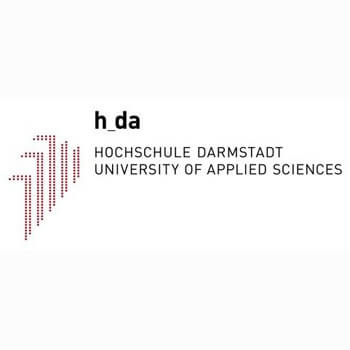
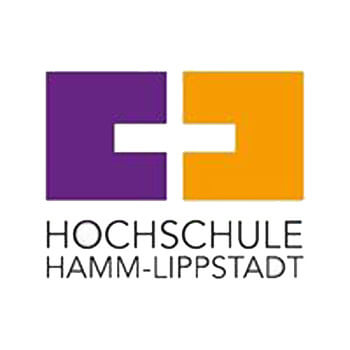
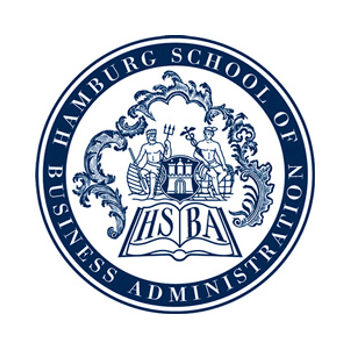


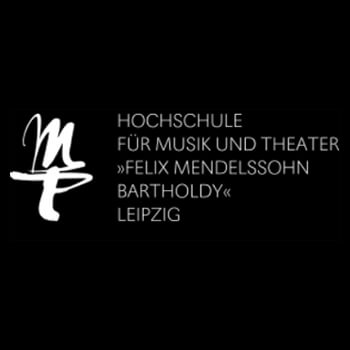

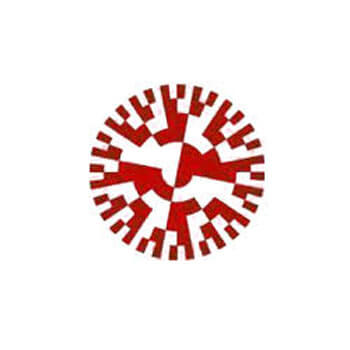










Leave a Reply